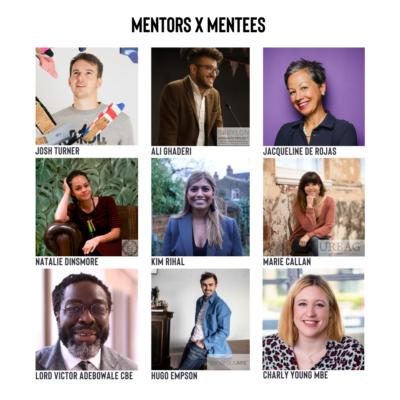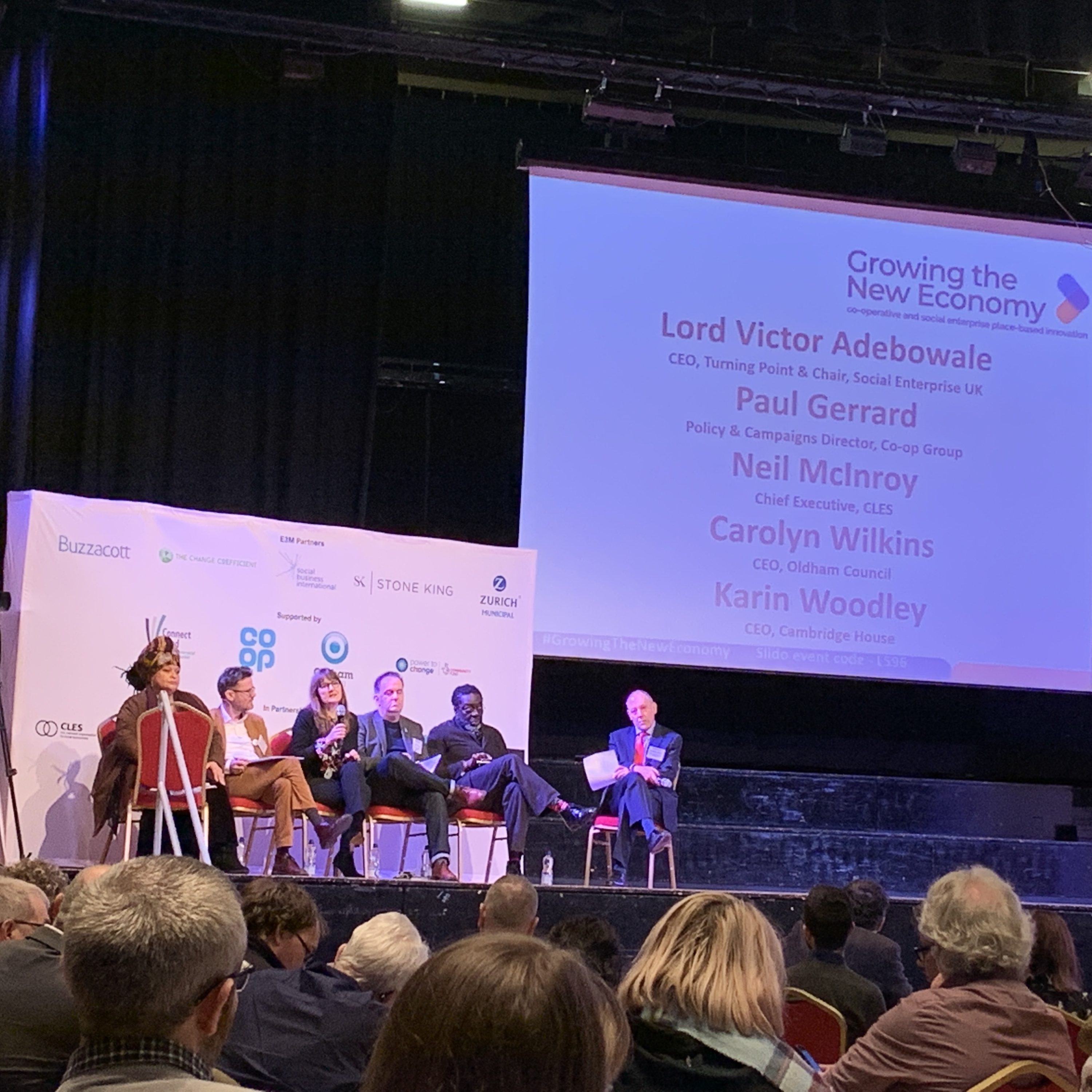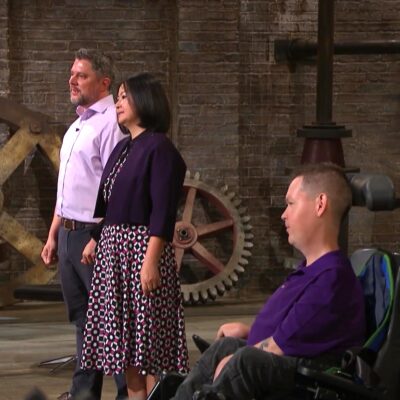
Read our 2022/23 Impact Report
In our Impact report we share that we proudly hosted 73 mentoring sessions for social enterprises and charities in the past year.
A keynote discussion at a social enterprise conference in Oldham came with an intriguing proposition. But did it come up with solutions?

How does one grow a new economy? That was the intriguing question at the heart of a conference held in Oldham yesterday by E3M.
E3M is an initiative that promotes social innovation in the way public services are run. The first discussion of the day promised to examine how and why we need to take a new approach to local economic development.
If you’ve attended many social enterprise conferences you’ll know there are often many earnest expressions of wishes – “We have to …”, “We must …”, “We ought to …” etc, some of them accompanied by passionate pulpit pounding and a strategic emphasis on certain groups of words identifying them as soundbites for those not at their best first thing in the morning.
This was the order of the day from Neil McInroy, Chief Executive of CLES, the national organisation for local economies, which promises to achieve social justice and effective public services. Browsing their website, CLES is a think tank (I think).
McInroy rose from his seat on the panel to blast away on the lectern, saying he wanted to see more co-ops, more community land trusts, more community banking, “A new economic democracy where people have a genuine stake as owners.”
Well, don’t we all Neil? There wasn’t much detail on how to achieve that though.
Against such rabble rousing, Social Enterprise UK’s Lord Victor Adebowale is often good at providing a reality check.
“Do we have a movement that is capable of making change? The answer is: not yet,” he started, in a calm and steady timbre that contrasted starkly with McInroy’s rallying of the comrades.
Appropriately, Adebowale spoke eloquently of finding the right language to engage the greatest number of people, mentioning Brexit in the process.
“We have to use language that speaks to people that aren’t in this room,” said Adebowale.
“We are the future of business but we have to turn it from something we understand to something that everybody does.”
The opening panel ticked the boxes for gender and racial diversity but, with a collection of charity, social enterprise and local authority represented, the glaring omission was an unapologetic capitalist doing well out of the current economic system.
How might those actors be convinced to participate in the kind of new economy being discussed?
“Most businesses would say that poverty and social unrest are not a good thing,” offered McInroy. Well, quite. Poor people find it hard to buy things, for instance.
But it was up to Adebowale again to gently lob a grenade into the room. Not for him a badge wearing B Corp as an example of good corporate behaviour. Nope: he chose an energy company worth billions.
“Engie has had more impact on the environment and ethics than everyone in this room. They have pulled out of fossil fuel commitments and their share price has gone up since,” said Adebowale.
“They are doing this because their chief executive has vision.”
Well … maybe. The Financial Times reported that Engie shares were up 6% a year ago; this month it wrote Isabelle Kocher’s ousting as chief executive was partly due to “a persistently weak share price.”
If the moral of this story is that growing a new economy takes vision, the sting in the tale might also be you have to be prepared to lose your (very well paid) job by taking risks in the process.
There’s no doubt that for a very profitable energy company with happy shareholders enjoying dividends, selling off fossil fuel assets to go down the road of renewables takes balls.
It would take similar cojones for business leaders to join forces with public and third sector organisations to build a new economy that works for everyone. What’s in it for them?
As Adebowale said, the best argument for them to play a part might well be “the risk to the future of sustainable returns on their business.”
You can find more information about E3M here.

Read our 2022/23 Impact Report
In our Impact report we share that we proudly hosted 73 mentoring sessions for social enterprises and charities in the past year.

Social entrepreneurs partner to help homeless and refugees
Proving you’re never too young to be a social entrepreneur is 17 year old Jacob Bell, whose candle making has led to a partnership with one of the poster boys of social enterprise.

How does it feel to appear on Dragons’ Den?
Rene Perkins of CityMaaS, who appeared on the show during the most recent run, reveals the truth about appearing on the perennial television favourite.